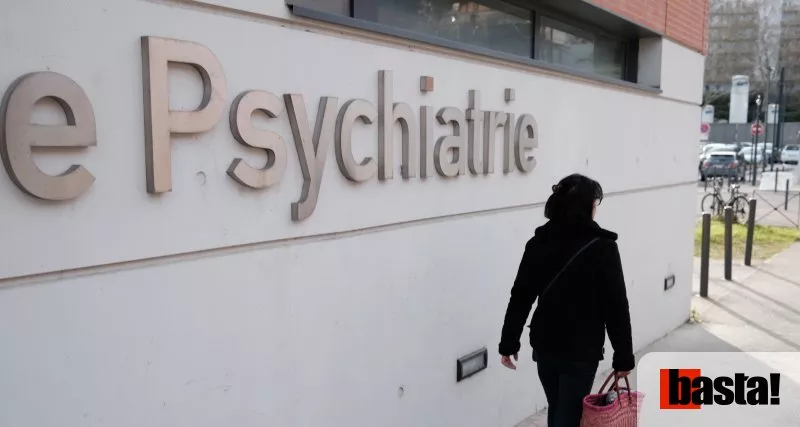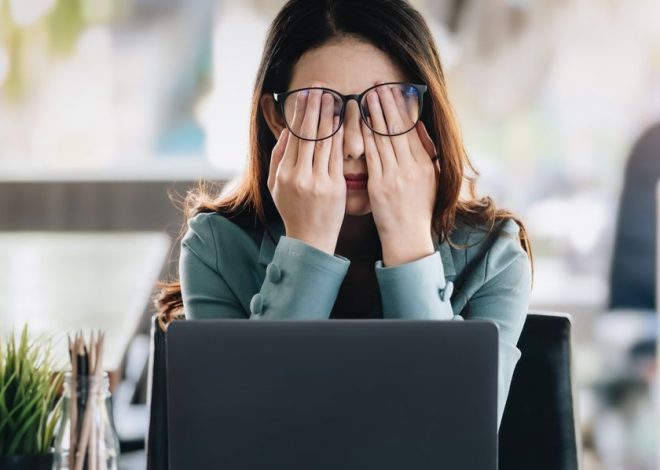
Solutions to the psychological suffering of adolescents: “adjust” and take the time
En five years, the mental health of young people has deteriorated considerably. This is the observation drawn up in April by Public Health France after a study of 9,300 high school students.born and middle schoolnes. A quarter of high school studentsnes questionedThey indicate having had suicidal thoughts during the last twelve months, which concern many more girls than boys. An Ipsos study published in early 2024 (and carried out in 2023), observes that half of 11-15 year olds suffer from anxiety.
Nursing staff decided to tackle the problem head on. This is the case of Equipaje, a multidisciplinary psychiatric intervention unit created at the Nantes University Hospital (Loire-Atlantique) just a year ago. Made up of nurses, a psychologist, a social worker, a healthcare executive and a doctor-psychiatrist, Equipaje can follow up to six young people aged 15 to 20.
Where liberal psychiatrists are no longer able to accept patientses and where certain medical-psychological centers (CMP) have a waiting period of between one and two years, the team responds within a few days and schedules an appointment in less than two weeks. A record in Nantes. “Our idea is really to adjust to the teenager’s life, to his schooling, his vacations… So we go to his home, to see the world in which he evolves. Then we play a game, we take a walk, it’s an interview, but while walking. Side by side therefore, not face to face. Without putting yourself in a psychotherapy position”explains psychiatrist Thibault Desrues, who heads Equipaje.
Preventing the crisis
The Loire-Atlantique department, like other very urban areas, is largely under-resourced in structures for teenagers in crisis. In the absence of support, over time, teenagers sink deeper into their dark thoughts. But solutions exist to avoid reaching the crisis that will send them through the door of these psychiatric emergencies.
“Equipaje was designed with this in mind, to offer a rapid response to the crisis. Our role is to quickly assess what is happening, to ease possible relational difficulties, to create an “à la carte” intervention.details Thibault Desrues. The place, outside the university hospital, also appears less threatening for young people who are able to go there. No heavy treatment or hospitalization is required. Moreover, studies call into question the idea that suicidal people should be hospitalized. »
The professionalsthe Equipaje team try to maintain what makes the unit strong: its responsiveness. The team carries out an assessment and assessment, plans reorientation to other services if necessary, and identifies situations that require longer follow-up. “We have situations that calm down quickly through dialogue, and others for which these few consultations are obviously not enoughexplains the psychiatrist. So, we support (teenagers) so that they can adopt a therapy approach. »
From the start, a care contract is established with the teenager, not with his parents, but with him, even if the relationship with the parents is of course worked on. It is also clarified that the Equipaje system does not intervene beyond three weeks. “We come to restore connection and calm. Signifying the brevity of the contract also encourages the young person to seize the opportunity”, underlines Thibault Desrues. Certainyou’re a teenageres, often refusing school, anxious, are cloisteredI’ve been home for weeks. To maintain its temporal specificity, Equipaje refuses to establish a waiting list. “Either we respond with a very quick appointment, or we refuse the request”defends the psychiatrist.
Lack of innovative devices
The temporality of adolescence is one of Professor Marie Rose Moro’s struggles. Head of department at Maison de Solenn, the adolescent psychiatric care unites of the Cochin hospital, in Paris, she is also the author of What if we loved our teenagers? (Bayard, 2017). She notes that innovative devices, very popular in the 2000s, when the psychological suffering of young people was less, today tend to decrease.
Marie Rose Moro therefore observes saturated services, incapable of responding promptly to young people who knock at the door, and which, with time and requests, have lost their particularity. “To properly welcome teenagers you need a walk-in reception, we cannot decently tell them “come back in a month” or wait until they are completely out of school… By removing this front door, we are making this disappear. who maintains the link »points out the professor.
You have to come and work on the only thing that works, namely the link, and over time, insists the practitioner: accept that ateenagere skips appointments, or arrives three hours late; accept the long duration of care, with all the complexity that this implies. “Seeing a teenager once a month is not qualitative, it doesn’t work. Likewise, you don’t cure a teenager who no longer wants to live by seeing them once. It takes monthsexplains Marie Rose Moro. We have to be creative to adapt to them. »
For psychologist and doctor of psychopathology Hélène Romano, society has neglected the mental health of children for too long, even though pediatrics and child psychiatry began to note severe disorders and symptoms in children aged 7-8 years in the 2000s. . “Today, the question of the link with adults is being undermined. There is a difficulty for parents to be in the emotional adjustment, to know how to say no, to know how to console their child as much as to teach him to manage his frustration. Adults are less and less there psychologically, to take the time to talk with their child. So there is damage to the attachment links”she laments.
For the psychiatrist Thibault Desrues, the causes of the psychological suffering of adolescents are multifactorial, and above all not to be uncorrelated with the upheavals in society. “We cannot oppose the suffering of a society and individual suffering. Psychiatry is a reflection of this society”he defends. “In France, adults have a very negative vision of youth and their futurejudge Marie Rose Moro. It is a society that is not very generous with them, which forgets that generational anxieties have always existed. »
“We don’t just need us, psychiatrists, no, we need educators, nurses, teachers… she also said. You have to go through mediation, it’s essentialshe insists. We work a lot around the arts: dance, slam, poetry, painting… We revive life with all the means at our disposal. Because if it takes time to no longer want to live, it also takes time to come out of it. »
Elsa Gambin
Photo of one: Toulouse, Haute-garonne, Occitanie, France, 2024-02-20. Illustration of the Psychiatry pole/©Patrick Batard/Hans Lucas

Ethel Purdy – Medical Blogger & Pharmacist
Bridging the world of wellness and science, Ethel Purdy is a professional voice in healthcare with a passion for sharing knowledge. At 36, she stands at the confluence of medical expertise and the written word, holding a pharmacy degree acquired under the rigorous education systems of Germany and Estonia.
Her pursuit of medicine was fueled by a desire to understand the intricacies of human health and to contribute to the community’s understanding of it. Transitioning seamlessly into the realm of blogging, Ethel has found a platform to demystify complex medical concepts for the everyday reader.
Ethel’s commitment to the world of medicine extends beyond her professional life into a personal commitment to health and wellness. Her hobbies reflect this dedication, often involving research on the latest medical advances, participating in wellness communities, and exploring the vast and varied dimensions of health.
Join Ethel as she distills her pharmaceutical knowledge into accessible wisdom, fostering an environment where science meets lifestyle and everyone is invited to learn. Whether you’re looking for insights into the latest health trends or trustworthy medical advice, Ethel’s blog is your gateway to the nexus of healthcare and daily living.



